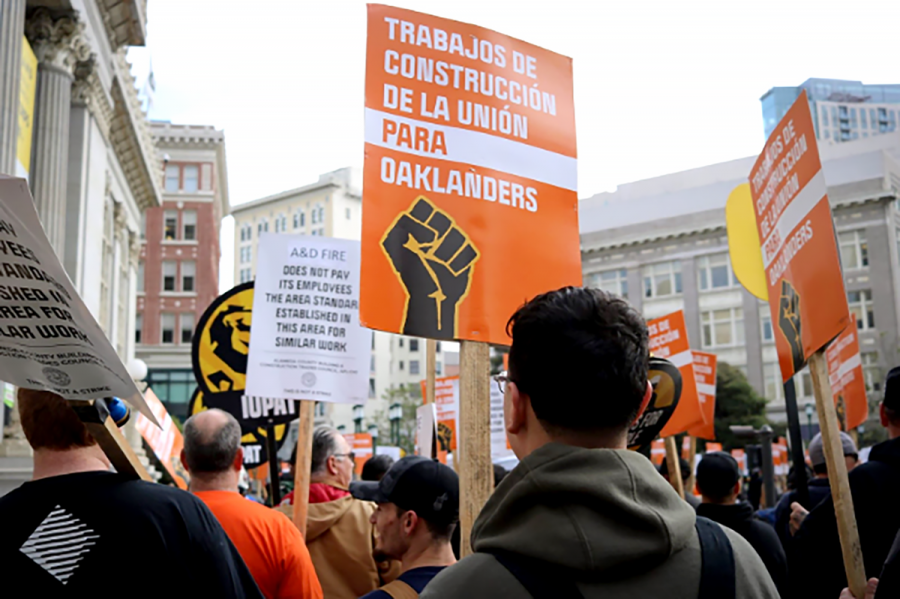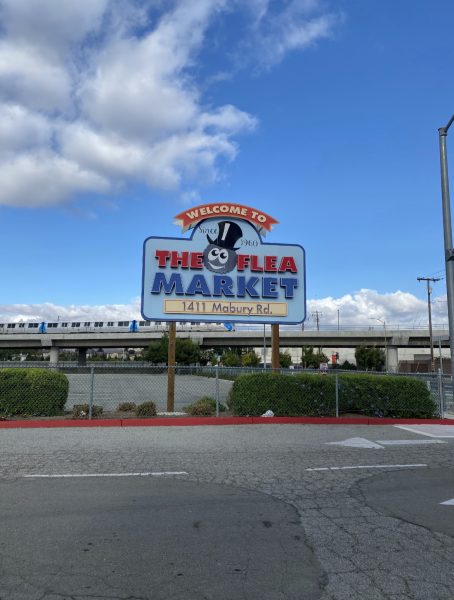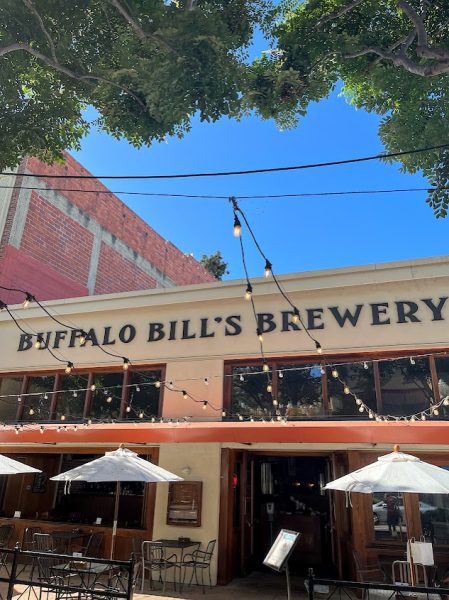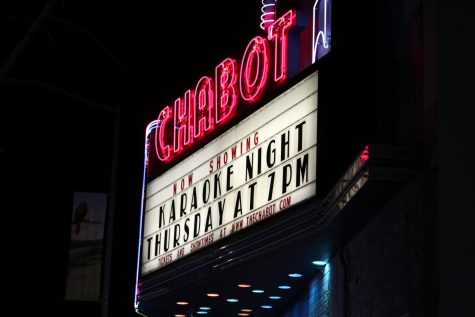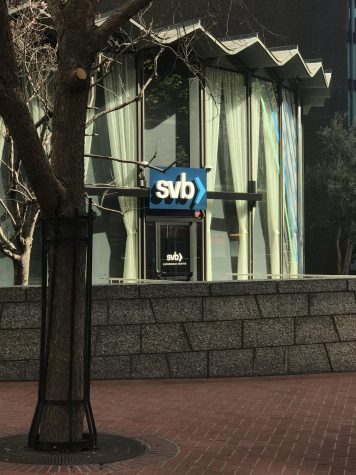Oakland union workers fight for jobs
June 5, 2019
Union members and allies gathered around in Oakland on May Day marching the streets in full safety gear and rallied for local jobs to be given to local union workers, a topic of debate that has been ongoing for years.
May 1 is recognized as International Workers Day and originated in the 1800s when people around the world were fighting to have promised accommodations that included the ability to start a union and a standard eight-hour workday.
It is 2019 and standard work practices have since evolved, but so have the issues. There was a boom of 45,000 new jobs in Oakland between 2009 to 2017, according to CBRE (the United States Real Estate Services). In 2016, Oakland even started working on a new $216 million bus and rapid transit system.
Despite this opportunity for economic growth in the city, union members and supporters still felt the need to march the streets of Oakland urging Mayor Libby Schaaf to enforce the requirement of hiring local union workers for publicly-funded projects.
Greg Bonato, a business representative for the IBEW, the International Brotherhood of Electrical Workers, said that the rally on May Day was aimed towards getting a Project Labor Agreement, or PLA, tied to all city-owned land that is sold or leased.
A PLA is a series of guidelines agreed upon by everyone involved in a contract that usually aims to keep money in the area by hiring local workers to do the contracted job.
“On union construction sites in Oakland, about 40-50 percent of the workers on the projects are Oakland residents” said Bonato, “But on the non-union construction sites at best there are 5-10 percent Oakland resident, most of those workers come from the valley, down south or from another state and are paid far below the area standard wage rate, with little or no benefits.”
IBEW members recognize the struggle workers face with lower pay and little to no benefits.
“It is depressing that that money is not actually going to the residents, we need it the most especially with prices of rent and gentrification. People that have lived here for years no longer can. But more PLA’s would keep the money here and keep long-term residents as well,” said Sarah Gonzales, an apprentice in the IBEW.
Gonzales was one of the first to show up at the picket rally on May 1 in her hardhat and safety vest.
“We decided to picket a non-union job that day to show our frustration at lack of union work in Oakland, our hometown,” she said.
Hiring non-union workers is not necessarily an issue exclusively for bigger companies. Pedro Vargas, a project manager for an East Bay company says that it is rather difficult for smaller businesses to compete against big non-union contractors.
“When we hire a union worker, we are not just paying for their salary, there are fees on top of that are meant to be for union benefits,” Vargas said. “But I was in the union for a long time and it was frustrating because we never really saw those benefits and there’s nothing you can do about it.”
Workers go through an apprenticeship that includes training through both an in-class setting and through hands-on work experience when they enter the electrical union. Once they complete the apprenticeship program, they are fully licensed as an installer.
An installer for sound and communication that has trained through the union has a starting pay base of $40 an hour, according to Vargas. On top of that base pay, there is an additional fee of $18 an hour per union worker.
That extra $18 is meant to go towards a variety of things like pension, healthcare, welfare and apprenticeship.
“But as a union member you already pay union dues and there’s a constant disagreement with our contracts. Where is all of that money going? And how is one supposed to compete?” said Vargas.
Gonzales is still actively completing her apprenticeship through the union and stated that they are currently in the midst of renegotiating their contract, which has not been an easy feat.
“Our new negotiating team came back with a plan that we are not completely excited about so our membership decided against it so now we have two weeks to come up with a new one or we will actually strike.”
The last time the faction of the union that the Oakland area belongs to went on strike was on July 27, 2016, and it lasted 13 days, according to the Union Facts page on the IBEW website.




